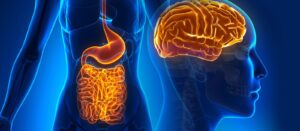Discover the advantages of holistic mental health interventions. Learn how holistic mental health treatment offers a comprehensive approach to well-being beyond conventional methods.
Introduction
Holistic mental health interventions are gaining traction as an effective alternative to traditional mental health treatments, which often rely on medication and standard therapies. This comprehensive approach to well-being integrates the mind, body, and spirit, providing a more rounded and inclusive method of care. In this article, we explore the numerous benefits of holistic mental health treatment over conventional methods, highlighting why this approach is increasingly preferred by both patients and healthcare professionals.
Understanding Holistic Mental Health Interventions
What are Holistic Mental Health Interventions?
Holistic mental health interventions aim to treat the whole person—mind, body, and spirit—rather than just alleviating symptoms. This approach recognizes that mental health is interconnected with physical and emotional well-being. 
Key Holistic Mental Health Interventions
Spirituality
Incorporating spirituality into mental health care can provide a sense of purpose and connection. Practices such as meditation, prayer, and mindfulness can foster inner peace and resilience. Spirituality often helps individuals find meaning in their experiences, which can be a powerful tool in mental health recovery.
Talk Therapy
Traditional talk therapy, such as cognitive-behavioral therapy (CBT), can be enhanced with holistic elements. Therapists might integrate mindfulness techniques, focusing on present-moment awareness, or incorporate discussions about lifestyle and nutrition, which can impact mental health.
Mindfulness
Mindfulness practices, such as meditation and breathing exercises, are central to holistic mental health care. They help individuals stay grounded in the present moment, reduce stress, and increase self-awareness. Research has shown that mindfulness can significantly improve symptoms of anxiety and depression.
Art Therapy
Art therapy uses creative expression to help individuals explore their emotions and experiences. Through painting, drawing, or other artistic activities, people can process trauma, reduce stress, and improve overall mental well-being. This form of therapy taps into the subconscious, allowing for expression beyond words.

Group Therapy
Holistic approaches to group therapy emphasize the importance of community and shared experiences. These sessions can incorporate various techniques, including mindfulness, art, and movement, fostering a supportive environment where individuals can connect and heal together.
Advantages of Holistic Mental Health Treatment Over Conventional Methods
Comprehensive Care
Holistic mental health treatment addresses the whole person, ensuring that all aspects of well-being are considered. This approach leads to more personalized care plans, tailored to the unique needs of each individual. By integrating mind, body, and spirit, holistic interventions offer a well-rounded approach that traditional methods often overlook.
Mind:
Techniques such as mindfulness and talk therapy help address cognitive and emotional aspects.
Body:
Physical activities like yoga and tai chi promote physical health, which is closely linked to mental well-being.
Spirit:
Incorporating spirituality and mindfulness practices fosters a sense of purpose and inner peace.
Fewer Side Effects
Unlike conventional treatments that often rely on medication with potential side effects, holistic interventions focus more on natural and less invasive methods. Practices such as mindfulness and art therapy have minimal side effects and can be seamlessly integrated into daily life.
Sustainable Practices:
Holistic treatments promote long-term health and well-being, reducing the need for ongoing medication.
Improved Long-term Outcomes
Holistic interventions often lead to better long-term outcomes by enhancing coping mechanisms and resilience. Instead of merely managing symptoms, these treatments aim to equip individuals with tools for sustained mental wellness.
Coping Mechanisms:
Techniques like mindfulness and art therapy provide individuals with practical tools to manage stress and anxiety.
Resilience:
By fostering a deeper understanding of oneself and one’s experiences, holistic treatments help build mental and emotional resilience.
Enhanced Self-awareness and Empowerment
One of the key benefits of holistic mental health care is the emphasis on self-awareness and empowerment. By engaging in practices like mindfulness and art therapy, individuals gain a deeper understanding of their emotions and thought patterns, fostering personal growth and empowerment.
Self-discovery:
Activities such as journaling and mindfulness meditation encourage introspection and self-awareness.
Empowerment:
Holistic treatments empower individuals to take an active role in their healing process, fostering a sense of control and agency.
Community and Connection
Group therapy sessions within holistic care provide a sense of community and connection, which is vital for mental health. Building supportive relationships can reduce feelings of isolation and promote healing through shared experiences.
Support Networks:
Group therapies create a supportive environment where individuals can share experiences and strategies.
Shared Healing:
The collective healing process in group therapy fosters a sense of belonging and mutual support.
“Mental health is not a destination, but a process. It’s about how you drive, not where you’re going.” – Noam Shpancer, PhD
Integration of Mind and Body Practices
Holistic mental health care integrates mind and body practices, creating a synergistic effect that enhances overall well-being. Techniques such as yoga and tai chi combine physical movement with mental focus, promoting both mental and physical health.
Yoga:
Combines physical postures with breath control and meditation, benefiting both body and mind.
Tai Chi:
A form of martial arts that emphasizes slow, deliberate movements and mindfulness, improving physical balance and mental clarity.
Conclusion
Holistic mental health interventions offer a comprehensive and integrative approach to well-being that goes beyond conventional methods. By addressing the mind, body, and spirit, these treatments provide a well-rounded strategy for mental health care. The advantages of holistic mental health treatment include fewer side effects, improved long-term outcomes, enhanced self-awareness, and a stronger sense of community and connection.
By embracing holistic mental health interventions, we can move towards a more inclusive and effective model of mental health care that prioritizes the whole person.



